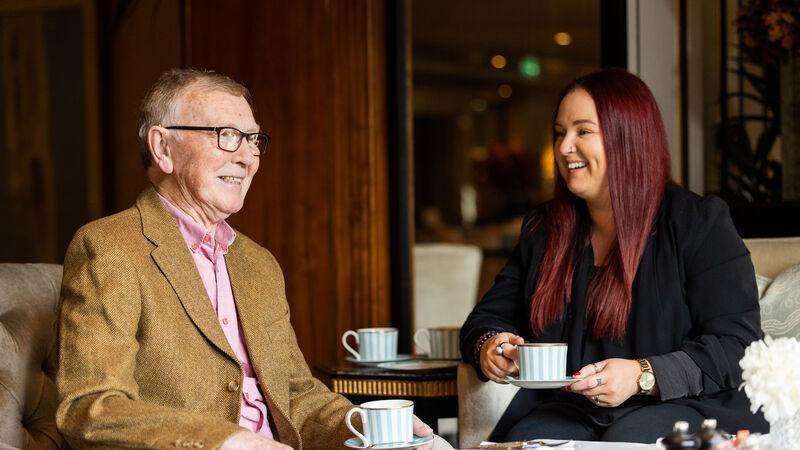More than 6,000 older people are waiting for a carer

George Finglas, 86, with his home carer Jamie Egan. Picture: Naoise Culhane
The national shortage of carers is the most urgent problem in homecare today, Minister of State for Older People Mary Butler said.
A conference on homecare also heard it was time to stop clapping for carers and show practical support instead.










